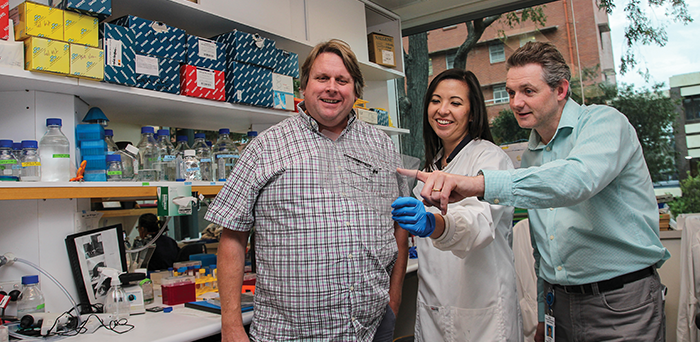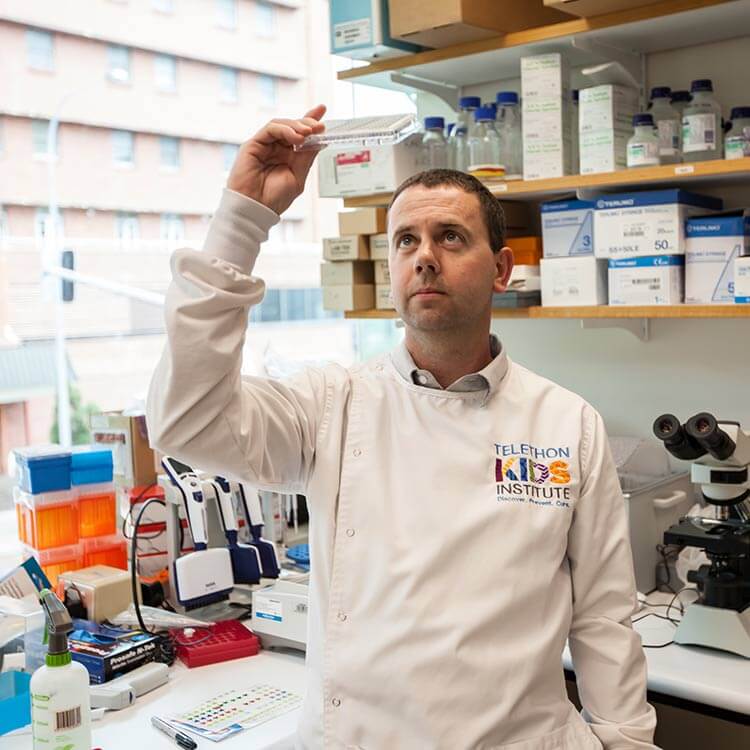Search
Research
Most clinical anti-EGFR antibodies do not neutralize both wtEGFR and EGFRvIII activation in gliomaWe discovered a previously unknown major resistance mechanism in glioma in that most EGFR domain III-targeting antibodies do not neutralize EGFRvIII
Research
International experience in the development of patient-derived xenograft models of diffuse intrinsic pontine gliomaThis multi-center study provides valuable information on the success rate of establishing patient-derived pre-clinical models of diffuse intrinsic pontine glioma
Research
New therapeutic opportunities from dissecting the pre-B leukemia bone marrow microenvironmentWe provide evidence that targeting leukemia-induced bone loss is a therapeutic strategy for pre-B ALL

News & Events
The Kids cancer researcher named a Superstar of STEMThe Kids Research Institute Australia brain cancer researcher, Dr Jessica Buck will today join the ranks of a select group of brilliant female scientists.

News & Events
How to win friends and influence people: Cancer researchers talk the talk for big resultsIn the field of cancer research, lobbying efforts by the The Kids Cancer Centre have contributed to major initiatives including Australia’s first personalised medicine program for children with high-risk cancer, and a mission to boost survival rates in brain cancer patients.

News & Events
Funding boost to melanoma researchA The Kids Research Institute Australia researcher will investigate new ways to harness the body’s own immune system to fight melanoma, thanks to Cancer Council WA funding.
News & Events
Adventurers deliver on a promise to help kids with cancerA state of the art 3D molecular imager that will help researchers monitor how brain tumours grow has been delivered to the Telethon Institute.
Research
Histone methyltransferase PRDM9 promotes survival of drug-tolerant persister cells in glioblastomaChemotherapy often kills a large fraction of cancer cells but leaves behind a small population of drug-tolerant persister cells. These persister cells survive drug treatments through reversible, non-genetic mechanisms and cause tumour recurrence upon cessation of therapy. Here, we report a drug tolerance mechanism regulated by the germ-cell-specific H3K4 methyltransferase PRDM9.
Research
Tumor site-directed A1R expression enhances CAR T cell function and improves efficacy against solid tumorsCitation: Sek K, Chen AXY, Cole T, Armitage JD, Tong J, ……… Waithman J, Parish IA, et al. Tumor site-directed A1R expression enhances CAR T cell

People
Professor Nick GottardoHead of Paediatric and Adolescent Oncology and Haematology, Perth Children’s Hospital; Co-head, Brain Tumour Research Program, The Kids Research Institute Australia
